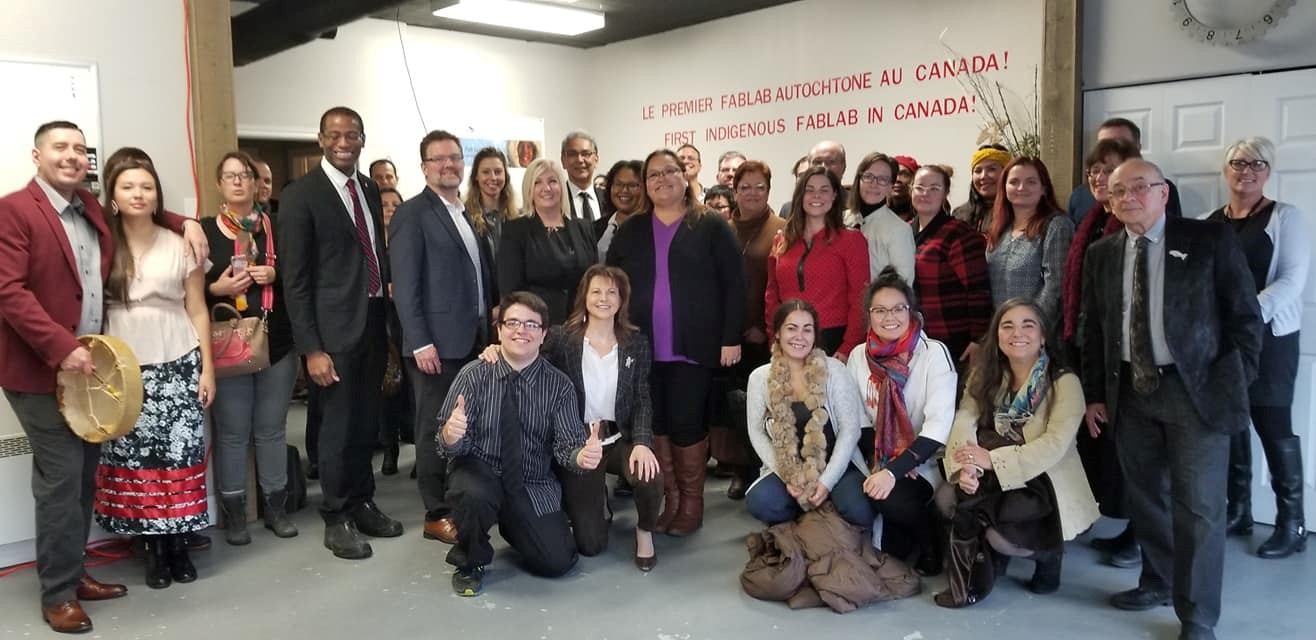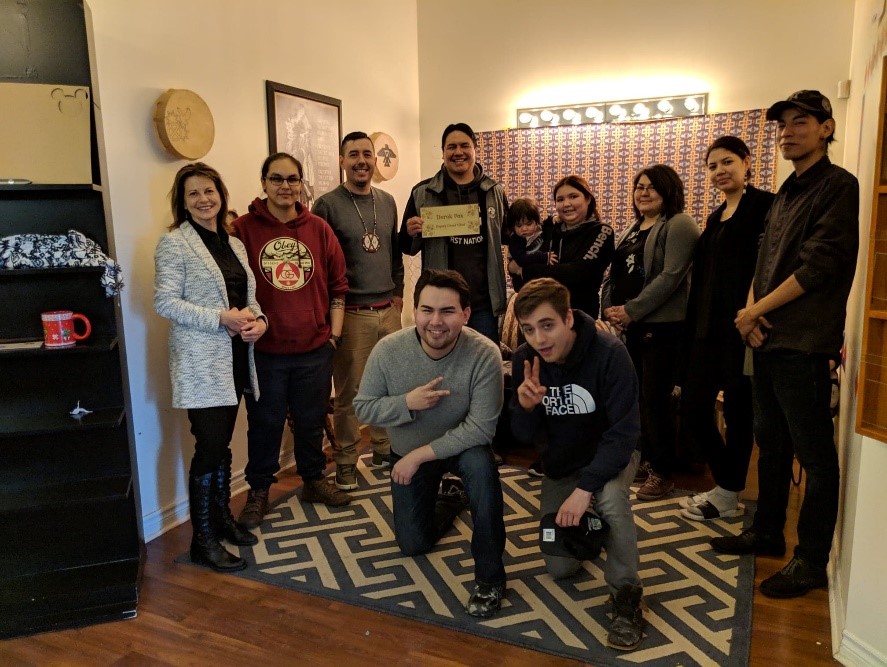
Official launch of FabLab ONAKI with several public figures, including Verna Polson, Grand Chief of the Anishinabeg Nation.
Fab Labs, which emerged out of the Massachusetts Institute of Technology (MIT), are collaborative digital fabrication workshops that are easily tailored to different needs and environments. For several years, the FPIC has been exploring the possibility of replicating this approach using Indigenous culture and methods. Interestingly, these highly modern mutual aid and learning spaces are actually very similar to First Peoples’ structures for passing down knowledge.
Learning by observation
In 2017–2018, thanks to funding from Employment and Social Development Canada (ESDC), the First Peoples Innovation Centre was able to test out the Fab Lab model with two cohorts of Indigenous youth aged 16 to 30.

A visit to FabLab ONAKI from Derek Fox, Deputy Grand Chief of the Nishnawbe Aski Nation. During this session, he discussed Indigenous values with the youth ambassadors.
The FPIC first adapted the MIT model to make it culturally relevant for Indigenous youth. The programming structure hinged on two key aspects: cultural pride and social innovation.
A five-month training program was then developed to zero in on the needs and ambitions of Indigenous youth. The FabLab ONAKI program is structured as follows:
- 4 months of intensive training at FabLab ONAKI
- 5 days a week
- 30 hours of programming and training a week
- 4 weeks of work placement
Mornings focus on cultural pride and exercises to envision the future. Afternoons are dedicated to acquiring digital and technological skills.
Results of the first cohort
Enrolment in the first cohort: 12 Indigenous youth aged 16–30 who had dropped out of school
After 5 months at FabLab: 9 Indigenous youth successfully completed the training
Success rate: 75%
Usual completion rate for this demographic: 20% to 30%
Results of the second cohort
Enrolment in the second cohort: 16 Indigenous youth from 16–30 who had dropped out of school
After 4 months at FabLab: 12 Indigenous youth successfully completed the training and work placement
Success rate: 75%
Usual completion rate for this demographic: 20% to 30%
